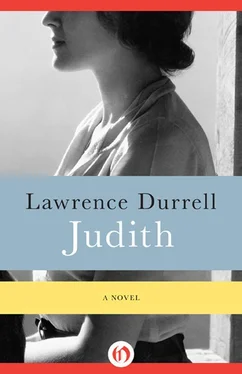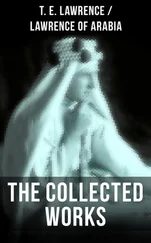“I know what this means to you,” he said.
“I’ll come with you,” she said eagerly, but he shook his head.
“There might be some shooting. One never knows. Besides, it’s strictly forbidden to take you on operations of any kind. You’ll wait here and I’ll bring him back to this office under escort.”
This solution did not please her, and she had difficulty concealing her irritation; but, after reflecting for a moment, it struck her that perhaps it was the wisest decision — particularly as she did not want David or the Haganah to feel that she had betrayed their secrets. She stood for a long minute considering. Lawton watched her sympathetically, and made an awkward attempt to cheer her up.
“The only man I knew who took women on active service was Carstairs. In the field his tent was always crowded with veiled ladies.”
But she did not smile. Instead she sighed and said:
“Very well, if that’s how it must be… but I don’t know how I’m going to live through the day until this evening…
The operation, which had been inappropriately christened “Marigold” by Lawton’s G.S.O.2., whose interest in botany far outweighed any other, took place as planned with a precision which, to the professional mind, is almost elegance. Punctually at six thirty, two squads of troopers sealed off the cul-de-sac by the Turkish prison, while at the same moment Lawton and a senior police officer stepped out of their cars and walked with slow unhurried but purposeful tread towards the closed door of number 27.
The street was deserted and silent, and their arrival seemed to cause no kind of interest. Beyond the cul-de-sac the traffic roared past on the Jaffa Road. Dusk was falling, and the first faint blossoms of street lamps were beginning to shine.
Duff, the policeman, was a huge insensitive lump of manhood, with a rosy face and a walrus moustache. His portentous air irritated Lawton.
“I think,” he said hoarsely, “I’ll call the picket and break the door down.”
Lawton gave him an impatient glance and said:
“It may not be necessary. Let’s try knocking first. We don’t want to wake up the whole street.”
Suiting the action to the word, he advanced to the door and tapped it twice in peremptory fashion with the muzzle of his squat Luger. There was a long moment of silence. Nothing happened. They waited, feeling rather foolish. Duff gave a windy sigh and looked at his companion with an air of impatient concern. Lawton was about to concede the policeman’s right to call his squad and smash up the door when all of a sudden they heard the noise of footsteps within. They had already noted with care the existence of a Judas in the heavy oak door. This now flicked open, and a startled dark eye confronted them. Lawton barked:
“Open up! Police!”
And, to illustrate the matter, thrust his pistol into the aperture until the muzzle rested an inch from the cold forehead of the man inside.
“Don’t shoot! Don’t shoot!” said the voice.
“Then open,” cried the policeman in a sort of snarl.
There was the squeak of bolts and the rattle of keys and the great door swung open on a deserted area of darkness, at the further end of which there could be dimly discerned a dilapidated stone staircase and a cobwebbed window. Somewhere in the darkness about them they heard the diminishing echo of footsteps scrambling upwards and a voice which shouted:
“Police!”
They leaped forward, their pistols cocked, and covered the great hall in a series of strides. The staircase, however, offered many advantages to a hypothetical defence, and they adopted the customary technique of mounting it, their backs pressed to the wall facing inwards, and taking eight stairs at a time before pausing.
The first floor was deserted and in darkness. The policeman seemed disposed to search it thoroughly before continuing to the second floor — and indeed this would have been a very normal precaution under ordinary conditions. But Lawton knew what he was looking for and knew where to find it. He pressed on.
The diagram which Grete had drawn on his green blotting pad was still fresh in his mind and, in spite of the almost total darkness, he felt confident and at ease. Experience, too, had something to do with it, for he knew that nothing is more futile than a desultory exchange of shots in darkness, and that no revolver can be counted upon beyond the range of eight feet.
So far, however, no opposition seemed in sight, and it was when they reached the second floor that he saw a bar of light shining into the open corridor from a half-opened door. His heart sank, for this was the door of the cell in which the captive had been imprisoned.
He quickened his pace, with the policeman at his heels.
“It looks as though they’ve got him away,” he said hoarsely.
The two men hurried — but with circumspection — down the long corridor and peeped into the room. It was indeed the cell as described so painstakingly by Grete, but the scene in it was a singular one.
Attached to the high iron bar which held a radiator in place hung the body of the German, his neck twisted grotesquely on one side. He had died clumsily, by slow strangulation. Two figures were busy with an old sheath knife, severing the cord which held him to the iron bar. Neither seemed armed and, when the policeman barked “Hands up!” they merely turned frightened white faces upon him before ignoring the challenge and continuing feverishly to try and wrest their captive away from the death he had designed for himself. The Englishmen sheathed their pistols, as if struck dumb by this strange scene, and walked slowly into the radius of the light with an air of vague uncertainty.
Günther Schiller’s body, in its strange dislocated posture, looked shrunken and twisted — like the body of a bird of prey nailed to a barn door. His face, puffy and contorted, was the colour of cigar ash. The black tip of his tongue stuck out of his swollen lips.
This scene, which to Lawton was merely grotesque, offered the policeman a professional and academic interest.
“Well, well, well!” he cried cheerfully. “The poor bugger miscalculated the drop. A foot and a half isn’t enough. He should have waited for me.”
This gross pleasantry only added to the grotesqueness of the scene. Now the rope gave, and there was a soft plump noise as the body of Günther Schiller scratched down the wall and pitched forward into the arms of his gaolers. They laid him on the floor and, between them, made a desultory sort of inspection to see whether there was any hope of reviving him. But it was obviously a hopeless task.
The policeman uttered a muffled expletive and turned on Lawton to say:
“Now I’m beginning to wish we hadn’t come. I suppose we can’t ignore this.”
He took out his notebook, sat down at the table and looked vaguely around him. The two Jews, having abandoned their efforts to revive the body, carried it to the low bunk in the corner and disposed it there, crossing the arms on the breast, covering its face with a cloth. Then they turned humbly round to face the policeman, who said with an air of massive reluctance:
“I suppose I’ll have to put you under arrest.”
Lawton, who had been absentmindedly reflecting on the scene — in his mind’s eye he could see the strained white face of Grete hovering near the office telephone — suddenly took a step forward and said brusquely, imperiously:
“Has he no papers? Did he leave nothing?”
He made a gesture of inconsequential exasperation in the air. Was this all that was left of Günther Schiller?
“Identity cards, passports, letters?… he had begun to shout incoherently.
The two gaolers shook their heads and spread their hands. One of them said:
Читать дальше












